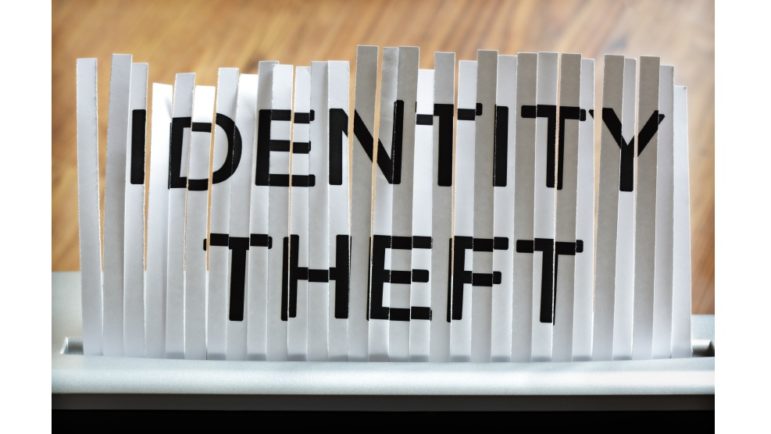Family governance is not a document you complete once and file away. It is a living system that grows and adapts just as the family

Protect Yourself: Reducing Your Fraud Risk
When news of the security breaches at Target and Neiman Marcus broke, many people, myself included, immediately thought, “Did I do any holiday shopping at either of those stores?!” followed by “What do I do now and how do I protect myself in the future?”
At Sand Hill, we have always been diligent about safeguarding client information. We have redoubled our efforts in the past several months as the number of fraudulent email requests have dramatically increased. To further ensure the safety of client assets and personal information, procedures such as voice verification of transfer requests, have also been adopted. Additionally, the custodians used by Sand Hill have heightened their scrutiny and levels of approval while dedicating significant resources to combat the rise in attempted fraud.
While it used to be easy to spot an e-mail hoax — who hasn’t gotten an email from Nigerian royalty asking for help in transferring money out of the country?! — the newest generation of criminals, thought mostly to be from Eastern Europe, has adopted significantly more sophisticated methods to commit fraud. For most criminals this has meant hacking client e-mail accounts and requesting the transfer of money, often in a conversational writing style that closely mimics the voice of the client. A typical fraudulent e-mail will also reference specific client circumstances, for example a concentrated stock holding, to gain credibility, underscoring the reality that hackers are not only sending messages from a client e-mail account, but also reading all of their personal e-mail as well. With e-mail being the easiest method of communication for busy clients, it is quite common for us at Sand Hill to receive transfer requests in this manner, including those that are fraudulent. In recent months, we have seen e-mail fraud attempted on client accounts. In those instances, no action was taken and the client was alerted that their email account was compromised. As mentioned above, we want to be absolutely certain, through additional means of approval, that a request is genuine before taking any action on new transfer instructions.
In addition to confirming all requests for money transfers, we do not use email as a means for transmitting sensitive client data like Social Security numbers and we caution clients to take the same precautions. If sensitive information must be sent via email, we encourage the use of password protected files. To further protect yourself from fraud, there are a number of measures you can undertake. First and foremost, you must be vigilant in protecting yourself online, especially with respect to your e-mail account. Passwords for e-mail accounts, as well as financial sites, should be complex and changed often, and care must be taken when using wi-fi in public places to access those sites. Digital signatures, where a handwritten signature is committed to a computer image or file that can later be stolen, should be abandoned. Preventing fraud also requires patience for additional security measures to be effective; in fact, imposing a short time limit or high pressure demand is a typical tactic employed by client imposters attempting to circumvent protective procedures.
Even with new and innovative fraud tactics, there are still a number of traditional mechanisms that are relatively simple to employ. To make sure you have not been a victim of fraud, it is important to regularly review your bank, brokerage and credit card account statements to confirm the activity is authorized. Regularly reviewing your credit report through the use of a monitoring service offered by your bank or credit card company to ensure you have not been a victim of identity theft is also a best practice to adopt. Though digital theft gets the headlines, personal information is still stolen in the world of paper as well. At a Sand Hill hosted event several years ago, one simple recommendation was to keep all personal information —name, address, bank/brokerage account numbers, Social Security number, and signature — out of the trash. It is just too easy for criminals to steal this information when it is sitting in a trash can right outside your door. It is important for clients to cross-cut shred (or burn as one of my clients does!) all of this sensitive data.
Sand Hill and our custodian partners remain committed to vigorously defending client assets and personal information from would-be thieves. However, the reality is that as we rely more and more on the internet and email to conduct regular business activities, our clients will also have a key role to play in their own security.
Articles and Commentary
Information provided in written articles are for informational purposes only and should not be considered investment advice. There is a risk of loss from investments in securities, including the risk of loss of principal. The information contained herein reflects Sand Hill Global Advisors' (“SHGA”) views as of the date of publication. Such views are subject to change at any time without notice due to changes in market or economic conditions and may not necessarily come to pass. SHGA does not provide tax or legal advice. To the extent that any material herein concerns tax or legal matters, such information is not intended to be solely relied upon nor used for the purpose of making tax and/or legal decisions without first seeking independent advice from a tax and/or legal professional. SHGA has obtained the information provided herein from various third party sources believed to be reliable but such information is not guaranteed. Certain links in this site connect to other websites maintained by third parties over whom SHGA has no control. SHGA makes no representations as to the accuracy or any other aspect of information contained in other Web Sites. Any forward looking statements or forecasts are based on assumptions and actual results are expected to vary from any such statements or forecasts. No reliance should be placed on any such statements or forecasts when making any investment decision. SHGA is not responsible for the consequences of any decisions or actions taken as a result of information provided in this presentation and does not warrant or guarantee the accuracy or completeness of this information. No part of this material may be (i) copied, photocopied, or duplicated in any form, by any means, or (ii) redistributed without the prior written consent of SHGA.
Video Presentations
All video presentations discuss certain investment products and/or securities and are being provided for informational purposes only, and should not be considered, and is not, investment, financial planning, tax or legal advice; nor is it a recommendation to buy or sell any securities. Investing in securities involves varying degrees of risk, and there can be no assurance that any specific investment will be profitable or suitable for a particular client’s financial situation or risk tolerance. Past performance is not a guarantee of future returns. Individual performance results will vary. The opinions expressed in the video reflect Sand Hill Global Advisor’s (“SHGA”) or Brenda Vingiello’s (as applicable) views as of the date of the video. Such views are subject to change at any point without notice. Any comments, opinions, or recommendations made by any host or other guest not affiliated with SHGA in this video do not necessarily reflect the views of SHGA, and non-SHGA persons appearing in this video do not fall under the supervisory purview of SHGA. You should not treat any opinion expressed by SHGA or Ms. Vingiello as a specific inducement to make a particular investment or follow a particular strategy, but only as an expression of general opinion. Nothing presented herein is or is intended to constitute investment advice, and no investment decision should be made based solely on any information provided on this video. There is a risk of loss from an investment in securities, including the risk of loss of principal. Neither SHGA nor Ms. Vingiello guarantees any specific outcome or profit. Any forward-looking statements or forecasts contained in the video are based on assumptions and actual results may vary from any such statements or forecasts. SHGA or one of its employees may have a position in the securities discussed and may purchase or sell such securities from time to time. Some of the information in this video has been obtained from third party sources. While SHGA believes such third-party information is reliable, SHGA does not guarantee its accuracy, timeliness or completeness. SHGA encourages you to consult with a professional financial advisor prior to making any investment decision.
Other Posts By This Author
- – The Sun Didn’t Set After All
- – Initial Steps to Take for Widows
- – Understanding the Terms: All About That Basis
- – Home Sweet RV
Related Posts







